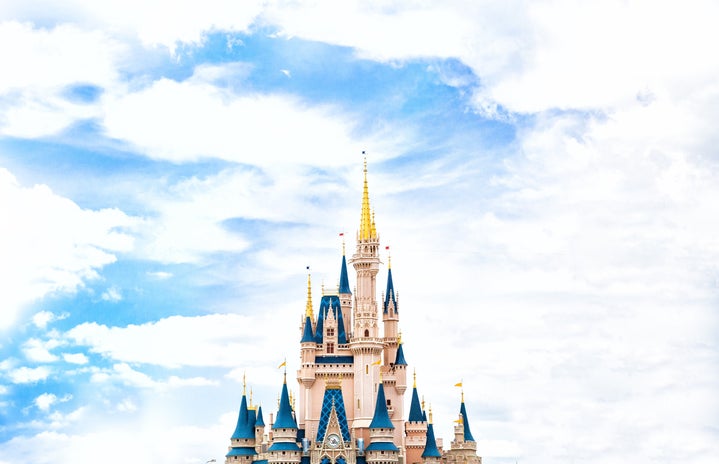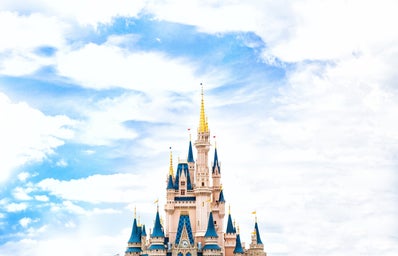I will be the first to admit that the Disney canon is rife with problematic messaging. While some of the more recent princesses such as Anna and Elsa, Merida, Tiana, and Mulan have more admirable and independent qualities, the term “Disney princess” nevertheless likely calls to mind a ditsy maiden twirling in a ballgown and being swept off her feet by a prince to live happily ever after. Decidedly not the best role models for little girls of the 21st century. And don’t even get me started on the complicated question of traditional gender roles and their associated problematic stereotypes as represented in the films.
I’m certainly not the first to have these kinds of doubts. A quick internet search reveals countless mom forums overflowing with concerned parents who have decided to shield their children from Disney entirely, rather than confront the complicated and antiquated values many of the older movies present. “I don’t want my son OR daughter to get the wrong impression here,” says one mom.
Celebrities, too, have come out against the traditional Disney princesses. In 2018, Keira Knightley revealed on The Ellen Show that she doesn’t let her daughter watch some of the older classics like The Little Mermaid and Cinderella, expressing her frustration with a heroine who “waits around for a rich guy to rescue her. Don’t! Rescue yourself. Obviously!” The comments sparked a heated debate about Knightley’s parenting choices. Some parents praised her for trying to raise her daughter without oppressive and archaic gendered stereotypes, while others cited the very real concerns of a child feeling deprived or left out of something that is so deeply ingrained in our culture.
While I may have somewhat buried the lede here, now seems like as good a time as any to mention that for the past two summers I worked as a Disney princess performer for children’s birthday parties. I’ve played Cinderella and Ariel, as well as Belle, Rapunzel, Elsa, and Anna dozens of times. And I won’t lie: performing for kids at an age where they still truly believe is, well, a magical experience. Especially when the princess’s arrival is a surprise — it’s unbelievably gratifying to watch the kids’ faces light up. However, around halfway through my first summer playing princesses, I began to worry about how I fit into the “Disney Do or Don’t” conversation. Was I complicit in perpetuating harmful stereotypes, holding back an entire future generation of potential female leaders who could otherwise be saving China with their small komodo dragon sidekicks? I will confess that I had a bit of a princess identity crisis.
So, like any good history major, I turned to the monarchs of the past for guidance, and arose from the pit of self-doubt with the refrain that leaders have been citing since the days of the French Revolution: with great power comes great responsibility (technically popularized by Spider-Man, but whatever). In other words, like any celebrity or leader, I now had a platform. But instead of millions of Twitter followers or Facebook friends, I had kids — arguably an even more impressionable and rapt audience. As far as they were concerned, I was a role model, so I had better act like one.
I took my lead from the closest thing this generation has to a real-life princess: Kate Middleton. The Duchess of Cambridge has always taken her job as a role model very seriously, frequently squatting down to speak with children at eye-level, and giving countless hours of her time to talk with kids about important issues such as kindness, mental health, and even self-care.
While staying in character, I began to talk to the girls like they were people, not princesses. Instead of complimenting their dresses or shoes (as we had been taught to do in “princess training”), I asked them about school and what their favorite subjects were. I said things like, “Oh! Perhaps you’ll write a book someday! I can’t wait to read it!” or, “Maybe you’ll be an engineer! We always need clever people to design new castles and carriages!” I found a happy balance between maintaining the magic while still pushing the boundaries of what a princess could be.
My role as a royal “influencer” became especially important this summer with the onset of the pandemic. Initially, when we were still doing in-person parties, the princesses were told we were not to wear masks, but instead maintain social distance, so as not to ruin the magic. I didn’t love this idea. With cases skyrocketing and the imminent return of kids to classrooms where they would be expected to wear masks all the time, why set the precedent that there were exceptions to the rules, especially with something that might seem strange and scary to little kids? So, some of my fellow princesses and I started to wear the masks to parties (appropriately bedazzled ones, of course).
We would arrive unmasked so the kids could see the full effect of who was visiting, and then before we approached, say things like, “That’s right! In your kingdom we wear masks right now to keep each other safe!” and mask right up. The kids didn’t seem to mind, and in a lot of cases, were genuinely excited to show us the designs on their own masks. While it may have been small, we felt like we were making a little bit of a difference.
For better or worse, classic Disney princess movies are too deeply ingrained into the fabric of our society to be excised now. As a child who grew up being barred not from Disney but Disney Channel, I know what it is to feel left out of the loop on popular culture. As with any piece of history, we can’t change its impact simply by ignoring its existence. So yes, I will raise my daughter with Disney princess movies, the old and the new. We will talk about how the princesses are kind and considerate, how they are sometimes silly to wait for other people to solve their problems for them, and how standing up for yourself can be scary or hard, but that it is always important. It’s really not about condemning or endorsing past characterizations. It’s about learning from them.
Besides, I do think it would be absolutely criminal to deprive any child of the absolute bop that is “Under the Sea.”


